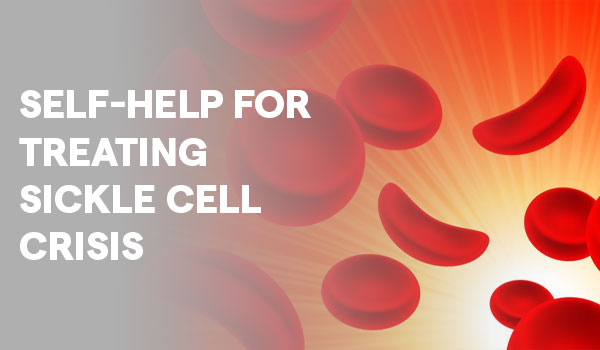
Symptoms of Sickle Cell Crisis
The major symptoms observed in a person with sickle cell anemia are bone pains because the homozygous form of the sickle is a disabling disease with repeated painful episodes, and the quality of life of an individual becomes very poor.
The Red cells present in the blood take the form of a sickle and get entrapped in the blood vessels resulting in poor circulation and occlusion of the blood vessels. As a consequence of the occlusion of the blood vessels, this results in severe painful episodes. In young infants, painful swelling on their hands, which is called dactylitis may be seen on lower limbs. The disease is even worse in old patients who, on and off, have repeated episodes of pain in the bones and, if it becomes severe, require hospitalization for intravenous painkillers. Pain can arise from any part of the body since sickling can occur in almost any bone or organ.
Types of Sickle Cell Crisis
Individuals could suffer from different types of Sickle cell crisis including-
Treatment
One of the modes of treatment that have been effective for sickle cell anemia is the use and application of Hydroxyurea. This helps prevent sickling and improve the quality of life of patients with sickle cell anemia. It is high on haemoglobin levels and is quite cheap and easily available. Other uses are for the management of some cancers, hence the many myths about this drug. This drug is quite safe and has minimal adverse effects. Careful monitoring is a prerequisite for such patients. Most patients handle this medicine very well and experience improved symptoms. All patients with sickle cell anemia require a vitamin supplement known as folic acid. This is again very cheap and freely available. Some children require frequent blood transfusions as sickle red cells are destructed prematurely. Stem cell transplantation is one of the modalities used in permanent cures. It is given in the severe form of the disease.
Prevention
Patients suffering from sickle cell anemia should avoid dehydration. They must avoid going to very high altitudes. They should be vaccinated against pneumococcal bacteria, meningococcal, typhoid, and influenza as these microbes can cause severe infections. Fever episodes should be treated immediately. Any episode of sudden onset of paleness of the body increase in jaundice or severe painful episode should be addressed on an emergency basis.
Antenatal detection of this disease is also possible. All pregnant mothers should undergo HPLC testing to screen for sickle cell disease. If the mother is found to be a sickle cell carrier then the father should be screened immediately. If both are carriers, then chorionic villous sampling can be done by 10-12 weeks of pregnancy. If the fetus is carrying 2 defective genes, medical termination of pregnancy can be offered. Pediatric haematologists are specialists who deal with children with blood disorders. They are experts at managing Sickle cell anemia.
Sickle cell crisis is an acute and severe form of sickle cell disease characterized by severe pain and, if not treated early, may lead to organ damage due to vaso-occlusion. While treatment mode is primarily through pain management and prevention from complications, unpredictability is a challenge both for the patient and the health professional. Recent advances in new treatment forms at the best paediatric hospital in Delhi, including gene therapy and new drugs, provide hope for better outcomes. However, the global burden of sickle cell disease requires further efforts toward awareness, increased care, and support to relieve the affected individuals and their families. With our increasing understanding of the disease and the discovery of new therapies, the outlook for all those surviving with sickle cell disease has, without a doubt, been improving, moving remarkably closer toward effective control and even cures of this quite challenging condition.
The team of experienced specialists at Sir Ganga Ram Hospital will provide you with personalized care, support, and treatment options for the sickle cell crisis. Take action today and reclaim your health. Book an appointment at Sir Ganga Ram Hospital for a consultation.